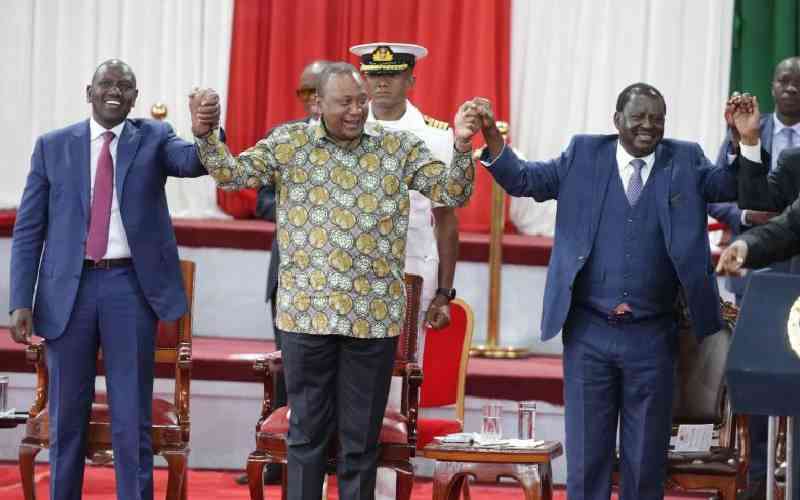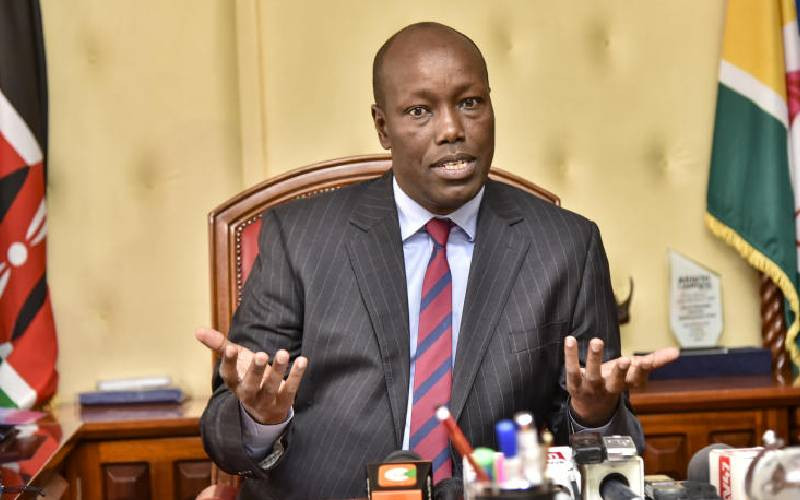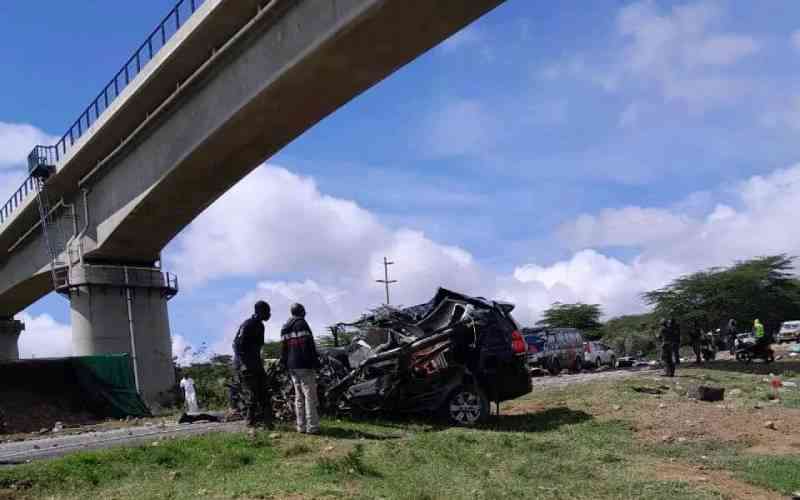President Uhuru Kenyatta has repeatedly said he wants to be remembered for helping Kenya move towards a united and cohesive country.
So important is the subject of inclusivity that as a follow up to the handshake, the Building Bridges Initiative picked it as one of the thematic areas that must be addressed in order to take the country forward.
It’s upon the reintroduction of multi-party politics in Kenya in 1992 that tribal political parties began mushrooming. These parties drew their political support from the tribe of the main protagonists; mostly a single individual.
Subsequently, the concept of coalition building was introduced after the Opposition failed to dislodge KANU from power in 1992 and 1997. In 2002, though the idea of a coalition of Opposition parties was noble, the National Rainbow Coalition (NARC) did not become panacea to the problem of exclusion. The coalition got overwhelming support in what went down as one of the freest elections in Kenya’s electoral history.
Though the NARC government was designed to be one based on the concept of power sharing and inclusivity, the mistrust that developed between the coalition partners made NARC a failed experiment in relation to the two concepts. The fallout within the coalition, together with a combination of other factors, led to an explosive electoral process in 2007 that led to the worst political violence the country has ever witnessed. Tribal vaults based on perception, fear and sheer lies about communities did the country bad.
Through the intervention of the international community, power sharing led to the formation of the Government of National Unity. Though tensions characterised the tenure of the coalition government, there was some sense of inclusion.
Civil strife
The concept of power sharing was later to be used in Zimbabwe and Ivory Coast to stabilize otherwise polarised nations. For the time of subsistence of the power sharing governments, the countries enjoyed stability and peace that competitive politics was unable to achieve.
What this shows is that in countries that are so deeply divided along ethnicity, the idea of democracy being the rule by the majority can result into unwanted situations like civil war, genocide, secession among other manifestations of civil strife. All these evils stem from feelings of exclusion propagated by the elites and consumed wholesale by their respective masses, pitting communities against each other.
Though not a pure case of power sharing, we laud the handshake between President Uhuru Kenyatta and Former Prime Minister, Rt. Hon Raila Odinga. Through the handshake, there is a promise that a people-driven solution can be found on how all communities can feel part and parcel of government and of the nation. In this sense, attitude is a much more difficult enemy than corruption because it is impossible to change it unwillingly.
Clearly, inclusivity will continue being an integral part of our development discourse. Haven’t we seen property, both private and public, being razed down just because we have political differences in the nation? Development without feelings of inclusion is development built on quicksand. How to achieve inclusivity is the real question.
Electoral process
First, the ‘winner-take-it-all ‘nature of our electoral system is a problem whose solution must be found. It is noteworthy that the elections in 2007, 2013 and 2017 were hotly contested. Though the Independent Electoral and Boundaries Commission and its predecessor pronounced themselves on the results of the presidential poll, not all parts of the country took their word to be indisputable truth. Sections of society have felt short-changed by both the electoral process and the outcome.
Those in government, having enjoyed the goodies that come with formation of government, are ready to do anything to remain in power. On the other hand, those in opposition are equally ready to do anything to form government, having suffered in the ‘cold’ despite garnering millions of votes. This makes the electoral process a ‘do or die’ exercise.
This is probably the reason allegations of rigging are always rife throughout Kenya’s electoral circle. In such a stiff competition where the consequences of losing an election are dire, one can see why others foment violence and instability as a counter measure for power.
Stay informed. Subscribe to our newsletter
And these tensions are both at local and national levels but more pronounced at national level for obvious reasons. Debate on form of government should be based on how to eliminate as many forms of exclusion from Kenya’s political market for the country’s good.
Ultimately, patriotism is a feeling. Can patriotism and exclusion work in tandem? A country’s development and stability are in the hands of patriots. Only when we embrace inclusivity shall we live true to our national Anthem: let one and all arise with hearts both strong and true. Service be our earnest endeavour and our homeland of Kenya heritage of splendour firm may we stand to defend. One and all.
Prof Mogambi, Communication and Social Change Expert, teaches at University of Nairobi: Email: [email protected]
 The Standard Group Plc is a
multi-media organization with investments in media platforms spanning newspaper
print operations, television, radio broadcasting, digital and online services. The
Standard Group is recognized as a leading multi-media house in Kenya with a key
influence in matters of national and international interest.
The Standard Group Plc is a
multi-media organization with investments in media platforms spanning newspaper
print operations, television, radio broadcasting, digital and online services. The
Standard Group is recognized as a leading multi-media house in Kenya with a key
influence in matters of national and international interest.
 The Standard Group Plc is a
multi-media organization with investments in media platforms spanning newspaper
print operations, television, radio broadcasting, digital and online services. The
Standard Group is recognized as a leading multi-media house in Kenya with a key
influence in matters of national and international interest.
The Standard Group Plc is a
multi-media organization with investments in media platforms spanning newspaper
print operations, television, radio broadcasting, digital and online services. The
Standard Group is recognized as a leading multi-media house in Kenya with a key
influence in matters of national and international interest.








